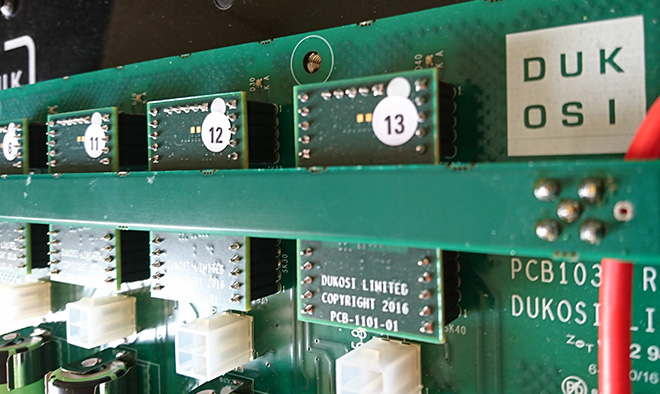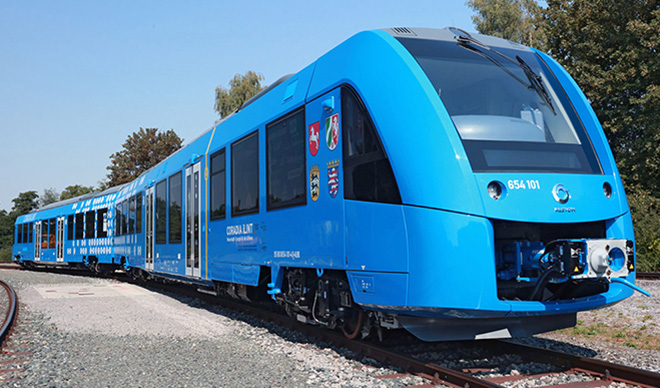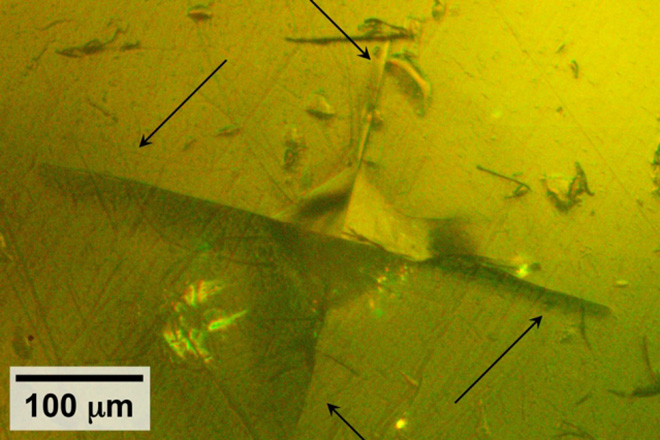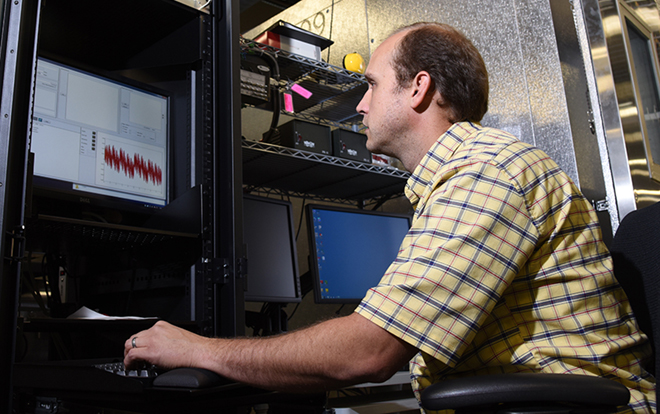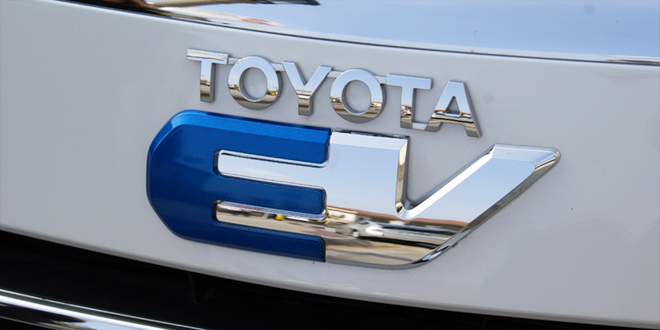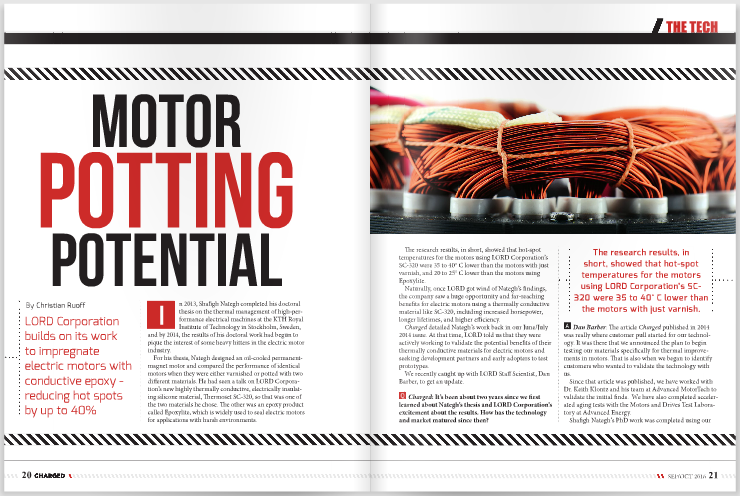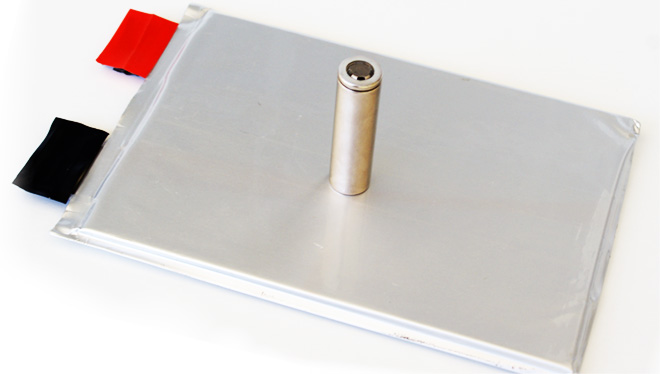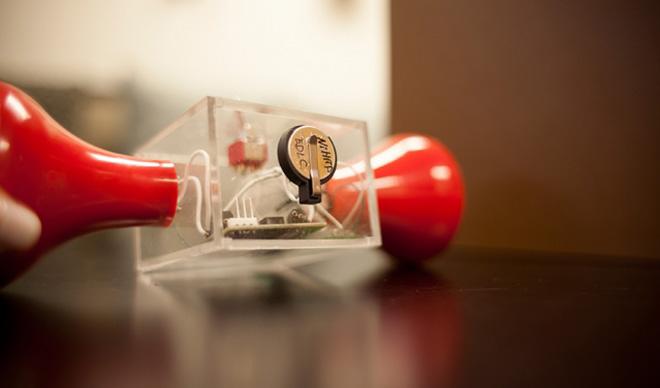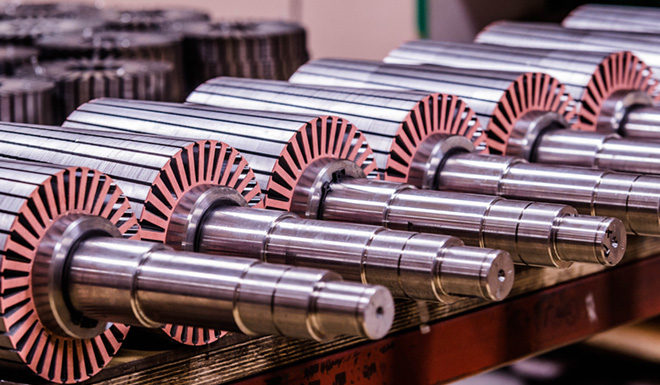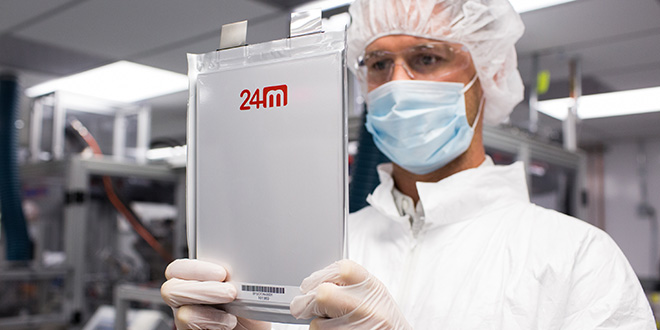Scottish battery management systems innovator Dukosi has secured £2 million in new investment funding, led by IP Group. Dukosi has developed a battery management system (BMS) that collects, processes and stores data directly at the cell. Using wireless technology, the system transmits real-time information on cell performance to support master-level control of the battery pack…. Read more »
Search Results Found For: "Performance Team "
Alstom fuel cell/battery passenger train to go into service in Germany
French train manufacturer Alstom has developed a passenger train that incorporates both fuel cells and lithium-ion batteries The company presented the zero-emission Coradia iLint at the recent InnoTrans trade fair in Berlin. The German state of Lower Saxony has ordered 14 units, according to Die Welt, and plans to put them into service in December…. Read more »
MIT researchers investigate mechanics of sulfide-based solid electrolyte material
IMAGE: Using specialized equipment, a team from MIT did tests in which they used a pyramidal-tipped probe to indent the surface of a piece of the sulfide-based material. Surrounding the resulting indentation (seen at center), cracks were seen forming in the material (indicated by arrows), revealing details of its mechanical properties. Battery scientists are the world are exploring… Read more »
Dynexus licenses embedded battery diagnostic technology
The DOE’s Idaho National Laboratory has teamed with Colorado-based Dynexus Technology to develop a new battery diagnostic technology for the energy storage industry. Under an exclusive licensing agreement, Dynexus will commercialize INL’s embedded wideband impedance technology for analyzing and forecasting the health, aging and safety characteristics of batteries. The wideband impedance technique delivers in-depth diagnostic… Read more »
Toyota confirms it will develop EVs
Toyota will set up a special team in early 2017 to develop EVs, according to Japan’s Nikkei newspaper (via Reuters). The four-person team will include representatives from Toyota Motor, Aisin Seiki, Denso and Toyota Industries, with instructions to develop a long-range EV that will go on sale in 2020 in Japan, and possibly in California… Read more »
LORD Corporation builds on its work potting electric motors, reducing hot spots by up to 40%
In 2013, Shafigh Nategh completed his doctoral thesis on the thermal management of high-performance electrical machines at the KTH Royal Institute of Technology in Stockholm, Sweden, and by 2014, the results of his doctoral work had begun to pique the interest of some heavy hitters in the electric motor industry. For his thesis, Nategh designed… Read more »
Honda and Saitec develop magnesium ion battery with vanadium oxide cathode
The Saitama Industrial Technology Center (Saitec), in partnership with Honda, has developed a practical magnesium-ion rechargeable battery, according to Nikkei Asian Review. The two will officially announce their battery next month, and hope to commercialize it by 2018, at first in smartphones and other portable devices. Masashi Inamoto and colleagues describe the new battery in… Read more »
New supercapacitor has the potential for “astonishingly high” capacity
Supercapacitors, which can be charged rapidly and deliver intense bursts of power, are a hot topic these days. However, current supercapacitors use components made of carbon, which require high temperatures and harsh chemicals to produce. Now researchers at MIT and elsewhere have developed a supercapacitor that uses no conductive carbon, and that could potentially produce… Read more »
“Electrical steel” allows electric motors to run at much higher frequencies
The DOE’s EV Everywhere initiative, announced in 2012, has set goals of bringing EV battery costs down to $125 per kilowatt-hour, and electric drive system costs to $8 per kilowatt. To help make this a reality, the feds are investing some $59 million in 35 research projects around the country. One of these is led… Read more »
ARPA-E awards $3.5 million to develop ultra-high-energy density batteries
The DOE’s Advanced Research Projects Agency-Energy (ARPA-E) has awarded $3.5 million in funding to a team that includes 24M, Sepion Technologies, Berkeley Lab, and Carnegie Mellon University. The funds will be used to develop novel membranes and lithium-metal anodes for a new generation of high-energy-density batteries. 24M’s core technology is semi-solid lithium-ion, a new class… Read more »







